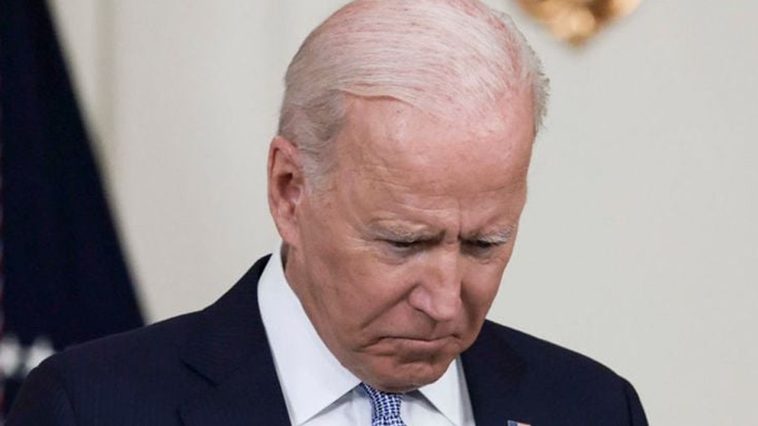The current U.S. administration is engaging closely with the Iraqi government, impressing upon them the indispensable need to safeguard American personnel stationed within Iraq. Disturbing reports regarding the increasing vulnerability of these troops to assaults by militias supported by Iran have been a cause for alarm.
The recent rise in such incidents, marked by 38 acknowledged attacks post the disconcerting Hamas incursions against Israel on October 7, have sparked fears of a larger conflict brewing in the volatile arena of the Middle East.
The U.S. administration is of the firm view that the Iraqi government has the means to secure the safety of the American military contingent stationed there. These sentiments were relayed by the State Department to Duyar Kurda, the Bureau Chief of Rudaw Media Network.
The belief is that the Iraqi authorities have sufficient capability to ensure the security of these groups, an effort it is envisaged, that they are currently applying themselves to.
The State Department spokesperson Vedant Patel echoed these sentiments in his exchange with Kurda. The expectation of the U.S. administration is that the Iraqi government possesses the necessary authority and ability to hold the militant groups responsible for their actions accountable.
These ongoing efforts are considered essential for maintaining peace and stability in the region.
Antony Blinken, the Secretary of State, had a one-on-one interaction with the Iraqi Prime Minister Mohammed Shia al-Sudani recently, wherein he voiced the current administration’s anxiety surrounding the heightened attacks on U.S. troops within the area.
Blinken shared that the dialogue was fruitful, helped by al-Sudani’s conscientious approach towards working with the Iraqi security forces to put a check on further unfriendly acts from Iranian-supported militias.
A positive outcome that Blinken alluded to post his interaction with al-Sudani was a reiteration of commitment from the latter. The Iraqi Prime Minister assured that he was in active cooperation with the national security forces in Iraq to prevent further militia attacks. This promise was certainly a step in the right direction towards ensuring the safety of the American troops stationed there.
In response to the evolving situation, the U.S. administration is making strategic moves to fortify its military presence in the Middle East, a move that appears to be an attempt to dissuade potential assaults by Iran-backed militias. Strengthening the naval presence in the region is a prominent part of this larger strategic initiative.
This is evidenced by the arrival of a nuclear-powered Ohio-class submarine in proximity to the Suez Canal near Cairo on Sunday. A display of military strength and readiness, this action signals unambiguous American determination to keep its personnel safe from harm.
Further manifesting the U.S. resolve to secure its interests in the region, the U.S.S. Dwight. D. Eisenhower aircraft carrier made its brief in the Middle East on Saturday. Jointly exercising power with the U.S.S. Gerald R. Ford in the eastern Mediterranean, these deployed assets underline the nation’s commitment to deter potential perpetrators and protect its military personnel.
Approximately 2,500 American troops are currently dispersed across various military stations throughout Iraq. Significant among these installations are the Ain al-Asad air base in the west and the Bashur air base in the north. Recent events have shown these bases have not been immune to the rising tide of regional hostility targeted towards them.
The U.S. military presence in the region is not novel. During the watershed event of the 2003 Iraq invasion, more than 100,000 American troops were stationed there. The objective of this massive operation was to dismantle the autocratic regime of Saddam Hussein. The aftermath saw the establishment of a governing system more inclined towards democratic practices.
This transition in the governance system allowed for a flowering of democratic sentiments and principles within the infrastructure of the Iraqi state, marking a significant shift from the oppressing reign of Saddam Hussein. The actions taken by the U.S. at that time were instrumental in catalyzing these changes and shaping the Iraq of today.
The goal of such essential and strategic interventions in the past and present is to foster a secure space for democracy to bloom and flourish even in those tough terrains riddled with longstanding conflicts and hostilities. While the challenges faced in this journey are neither few nor insignificant, the commitment to promote democratic ideals remains a key driving force behind these international engagements.
These initiatives not just speak volumes about the strategic national interest of the U.S. in ensuring global peace and stability but also reflect the deeply held belief in the value and power of democratic systems. It clarifies that this nation remains committed to thwarting forces that jeopardize these values, even if it requires deploying its military assets in volatile areas abroad.
The State Department, when contacted by the Daily Caller News Foundation for a comment on the developments, did not respond promptly. This non-responsive stance must not be confused with a lack of action or a diminution of seriousness attributed to the matter at hand.
As things stand, while the situation remains tense and fluid, there is a clear understanding from the U.S. administration regarding the role and the responsibility of the Iraqi government. The Iraqi government’s capacity to deal with local disturbances and its vital role in ensuring the security of U.S. troops remains a cornerstone of current policy discussions.
To conclude, the current U.S. leadership continues to emphasize the fundamental duties of the Iraqi government in preserving peace in the region and more importantly, protecting U.S. forces. The most sincere hope is that the Iraqi government will rise to the occasion and fulfill these responsibilities, thereby safeguarding its sovereignty while ensuring the safety of its international partners.



